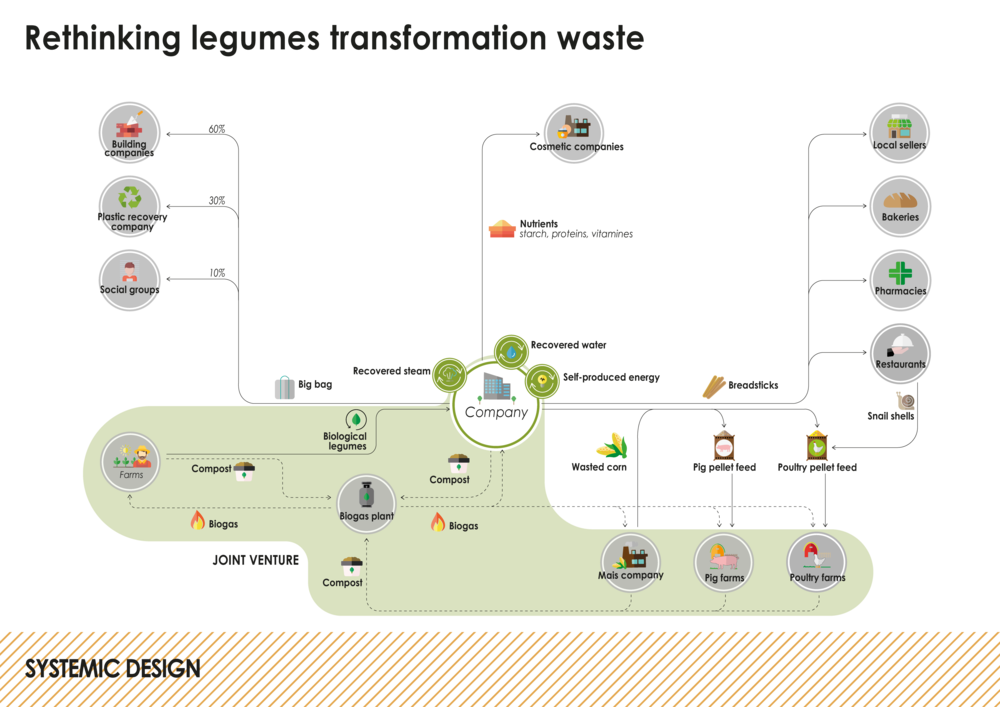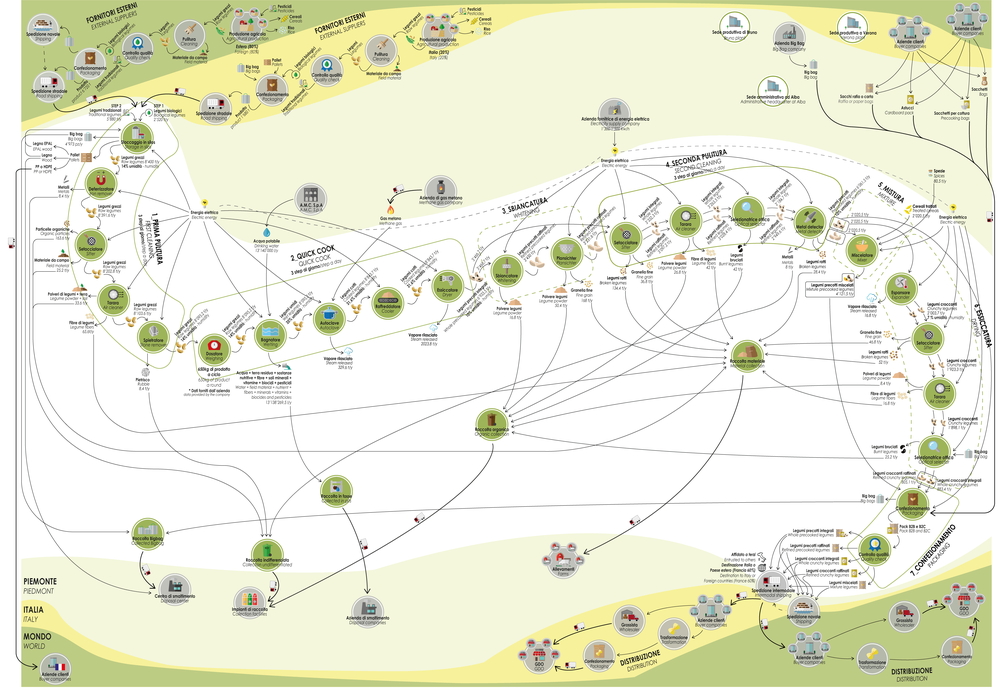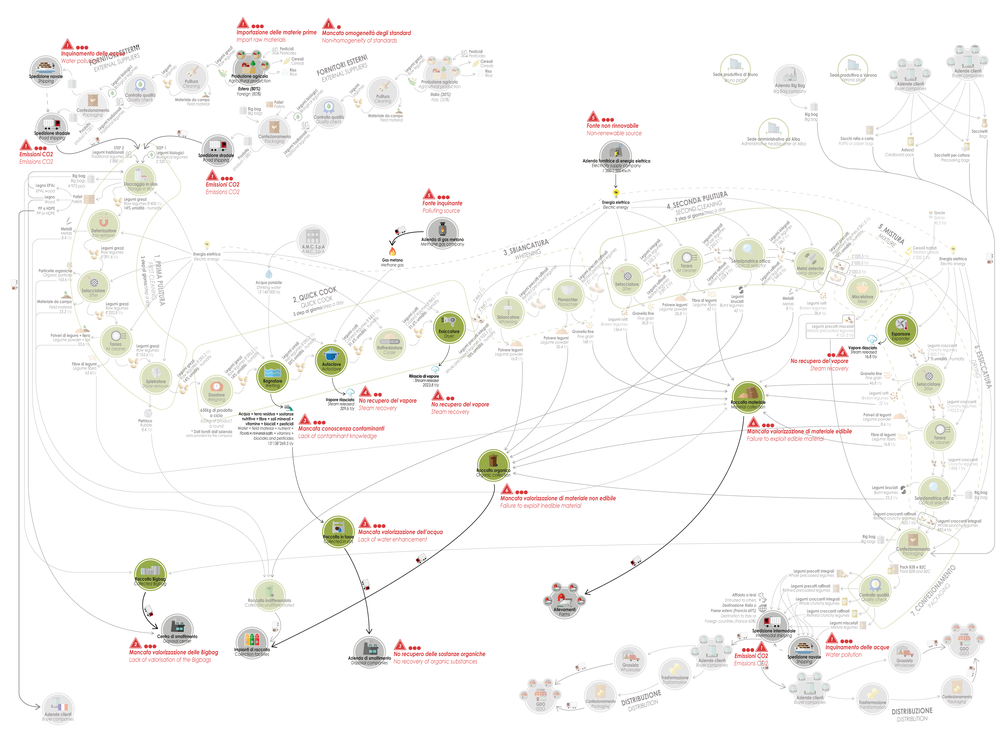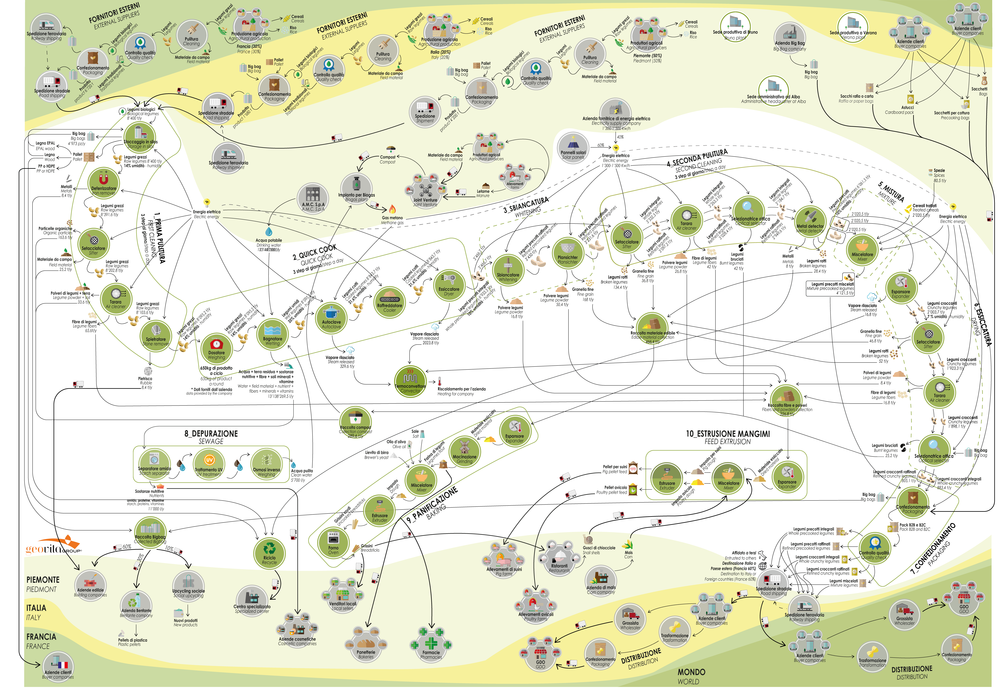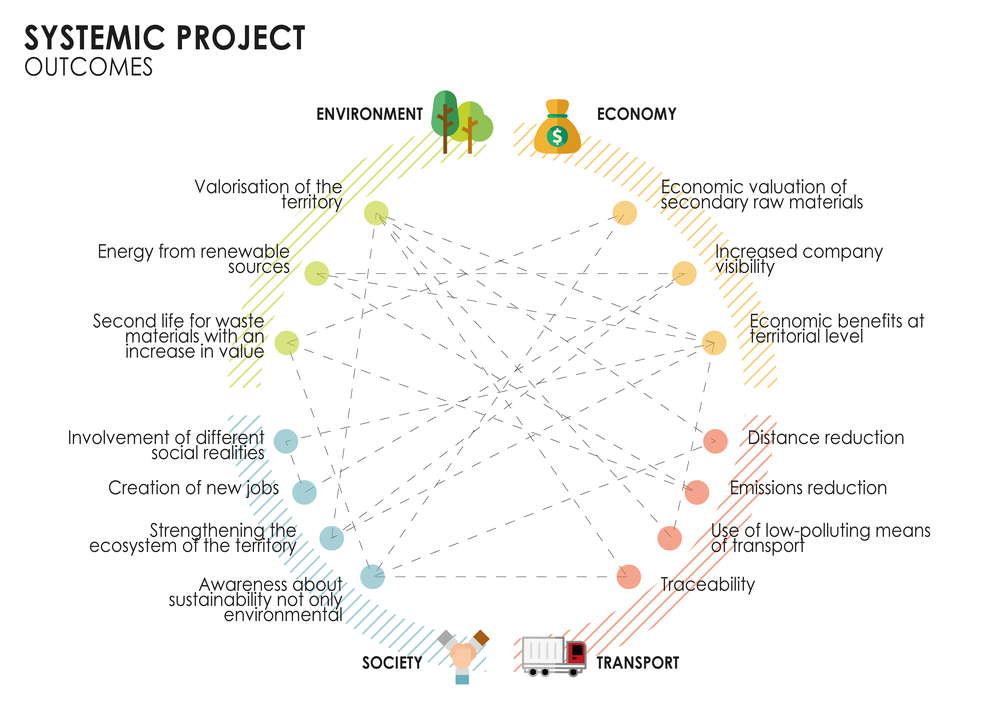Honorable Mention
Rethinking Legumes Transformation Waste, A Systemic Vision
New use of legumes processing waste, in order to create raw material useful for other realities
Solution
A new way to rethink and reuse the waste obtained from transformation processes of an industrial reality, converting it into a primary resource for the activities of other companies. All this exploiting the potentialities of the outputs, creating at the same time circular economy that acts at local level on the territory.
Project Description
New and innovative reuse of legumes processing waste, in order to create raw materials useful for other realities, acting locally and creating a company net of collaborations on the Piedmont territory.
Overview of the Solution
For the definition of the project, we studied the methodology defined by Systemic Design. In fact we started from a careful analysis of the territory and reference context, passing through the analysis of the state of the art of our focus company, that transforms and sells legumes.
After that, we identified the potential resources to finally define the new circular system, analysing the the company, to better understand its actual linear production process, finding the main criticalities by the economical, environmental and social points of view.
Once we understood the main steps of the linear process, we focused on the inputs and outputs of the system. These have been carefully analyzed, both from a quantitative (to know the amount of resources used and waste) and qualitative point of view, to understand the type and properties of available resources.
In this way, we have obtained an accurate overview of the company, highlighting how and which scraps could have given life to new processes or uses. After this stage, an analysis of the production costs (materials and used energy) was also carried, together with the actual efficiency of the processes (obtained from the ratio between quantity of incoming materials and outgoing materials).
Our project focuses on the opportunities given by the “use” of local suppliers, big bags recovery, introduction of solar panels, a new local joint venture for biogas supply among the local realities, steam recovery in the internal process, muds depuration plant and new production lines (breadsticks and animal feed).
One of the results obtained through this project is the interaction between different sectors, creating a change of paradigm and involving various fields, from the primary sector with local producers and breeders, to the secondary sector with various other productive companies (cosmetic, agricultural) and finally through the involvement of social realities, catering and retail sales.
PROJECT TEAM
Pablo Ciancio, Chiara Miglietti,
Annalisa Ponti, Alessio Rum,
Tommaso Scarpa and Maria Chiara Tortia
INSTITUTION
Politecnico di Torino, Architecture & Design Department, Italy
Category
System
FACULTY/COURSE ADVISOR
Silvia Barbero and Chiara Battistoni
STAKEHOLDERS
Geovita – private company Politecnico di Torino – public institution
